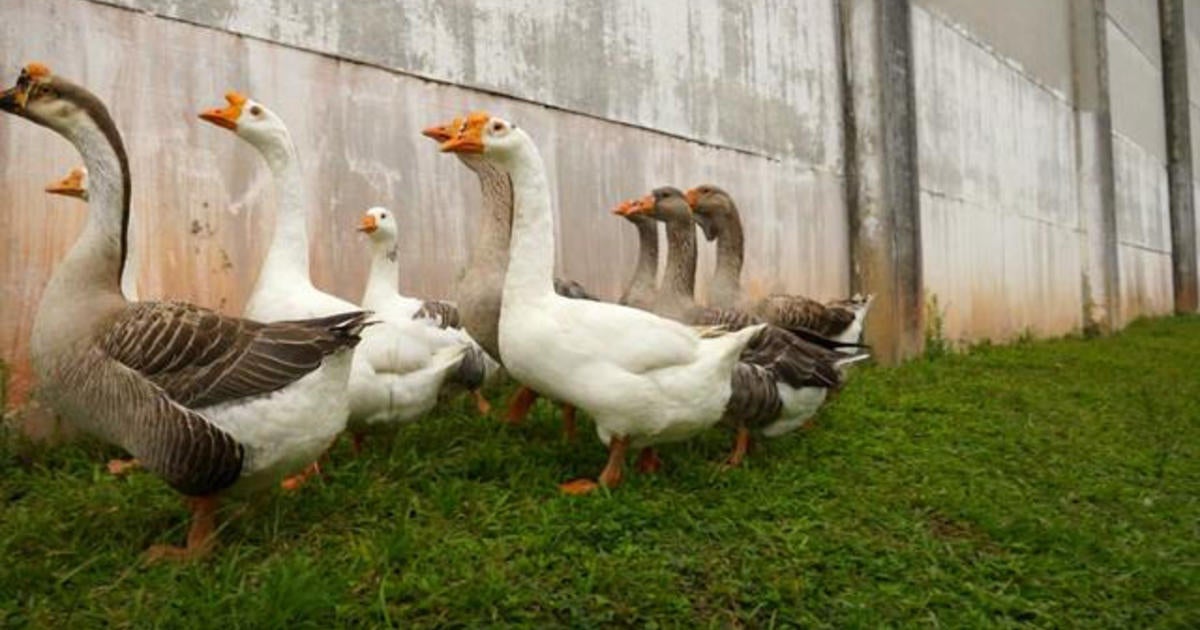How Geese Became Unlikely Guardians of Brazilian Prisons
In recent years, Brazilian prisons have adopted an unconventional method for enhancing security: employing geese as guards. This surprising twist in correctional facility protocols sparks curiosity and raises questions about the effectiveness of traditional security measures. Geese, known for their loud honks and protective nature, have proven to be more than just farm animals; they are now feathered sentinels in the realm of prison security.
The Rise of Geese in Prisons
The idea of using geese as guards may sound peculiar at first, but it stems from a need to find cost-effective and efficient security solutions in a challenging environment. Brazilian prisons face a myriad of issues, including overcrowding, violence, and escape attempts. Traditional security measures, such as guards and surveillance systems, often prove inadequate in these circumstances. This is where geese come into play.
Geese have a natural instinct to protect their territory. Their loud honks serve as alarm signals, alerting humans to any potential intruders or disturbances. In a prison setting, this instinct can be harnessed to enhance security protocols. Unlike dogs, which require extensive training and care, geese are relatively low-maintenance and can thrive in a variety of environments.
Effective Watchdogs
Prison officials have reported that geese are surprisingly effective as watchdogs. Their keen senses allow them to detect even slight movements or changes in their surroundings. Here are some reasons why geese have become an integral part of prison security:
- Heightened Alertness: Geese are naturally alert creatures. They are always on the lookout for potential threats, making them ideal for monitoring large areas.
- Noise Deterrent: The loud honking of geese can deter potential intruders, creating a psychological barrier that discourages escape attempts or unauthorized access.
- Cost-Effectiveness: Maintaining a flock of geese is significantly less expensive than hiring additional security personnel or investing in high-tech surveillance systems.
- Environmental Adaptability: Geese can thrive in various environments, from grassy fields to more rugged terrains, making them suitable for different prison setups.
Case Studies and Success Stories
Several Brazilian prisons have reported positive outcomes since implementing geese as a security measure. For instance, a prison in São Paulo introduced a flock of geese in its perimeter to monitor inmates and prevent escapes. The results were remarkable:
- Incidents of escape attempts decreased significantly.
- The geese’s honking drew attention during a few attempted break-ins, allowing guards to respond quickly.
- Inmates reported that the presence of geese made them less likely to attempt escape due to the increased risk of detection.
These success stories have prompted other facilities to consider similar strategies. The Brazilian government has even conducted studies to assess the long-term viability of using geese in prison security, further validating this innovative approach.
Challenges and Criticisms
While the use of geese in Brazilian prisons may seem promising, it is not without challenges. Critics argue that relying on animals for security could lead to unforeseen complications. Some concerns include:
- Animal Welfare: Critics worry about the treatment and living conditions of the geese. Ensuring their well-being is essential for maintaining their effectiveness as guards.
- Limited Training: Unlike dogs, geese cannot be trained to perform specific tasks, which may limit their utility in complex security situations.
- Weather Dependence: Extreme weather conditions could impact the geese’s behavior and health, potentially reducing their effectiveness as guards.
Addressing these challenges is crucial for the successful integration of geese into prison security. Facilities must implement proper care protocols and contingency plans to ensure that the geese can thrive and perform their duties effectively.
Broader Implications for Correctional Facilities
The incorporation of geese into prison security opens the door to exploring other non-traditional methods in correctional facilities. As the landscape of security evolves, it’s essential to consider innovative solutions that address the unique challenges faced by these environments. Some potential avenues for exploration include:
- Other Animal Guardians: Similar to geese, other animals such as ducks or even llamas could be researched for their potential security benefits.
- Technology Integration: Combining animal vigilance with technology, such as motion sensors, could enhance the overall security framework.
- Community Involvement: Engaging local communities in maintaining and caring for the geese could foster a sense of responsibility and connection, potentially reducing recidivism.
Conclusion
The surprising adoption of geese as guardians in Brazilian prisons reflects a broader trend towards innovative, cost-effective security solutions in correctional facilities. As geese honk away, serving as vigilant sentinels, they challenge conventional thinking about prison security and prompt discussions about animal welfare, cost efficiency, and the future of correctional practices. While there are challenges to navigate, the successful integration of these feathered guardians may pave the way for further exploration of unconventional security measures in the world of criminal justice.
As we move forward, it’s essential to remain open-minded about the potential for non-traditional solutions to address age-old problems. The story of geese in Brazilian prisons is a testament to the idea that sometimes, the most unexpected methods can lead to remarkable results.
See more CNN Headline


